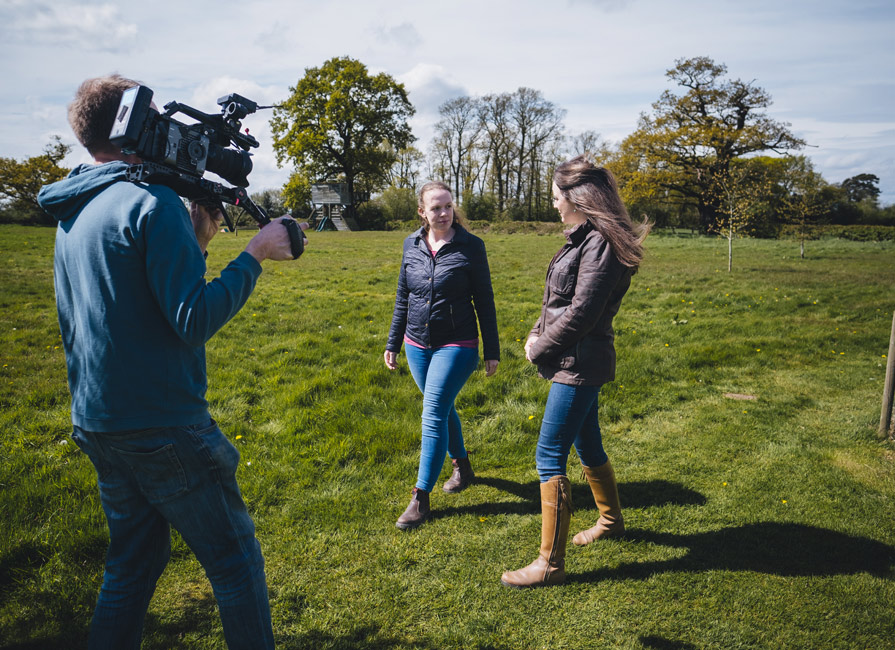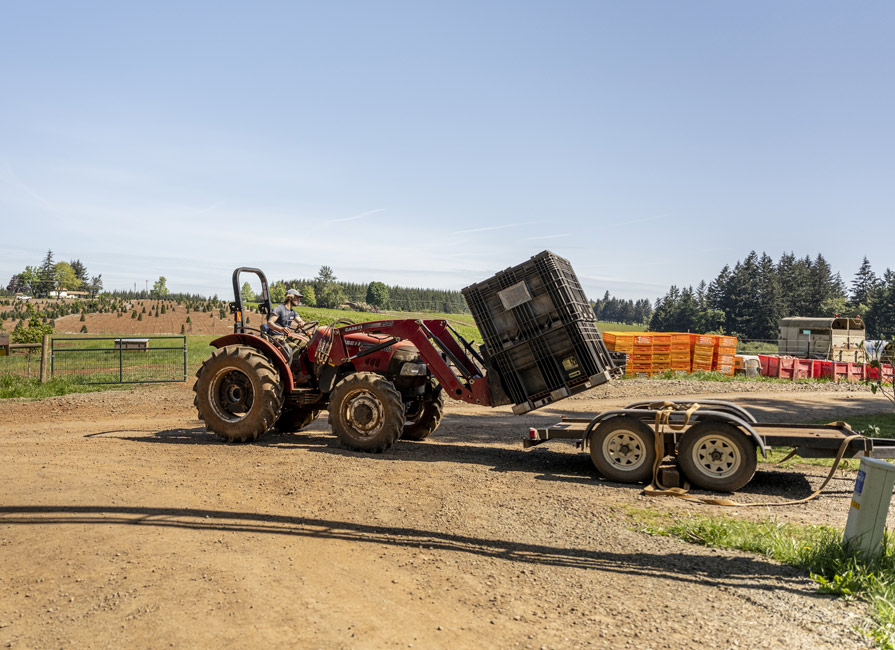One of the key attractions of our Certified Regenerative by AGW program is its practical…

Read All About It!
Do you have a story to tell, but you aren’t sure how to tell it? Perhaps you’d like to constructively engage with the media but you feel reluctant or nervous about it? If your answer is yes, then don’t worry—it’s a perfectly natural response!
Talking to the media can feel daunting, but there are strategies you can follow to help you effectively communicate with the press and prepare for media interviews.
Whether you’re looking to promote sustainable practices, enhance your public image or learn how to tell your own stories—without a press officer or PR person giving you a script!—here is some advice that can help.
Don’t believe the hype
Public perception of the agricultural industry comes mostly from the media. Unless you sell direct to consumer, there won’t be many chances for you to explain to customers what you do outside of social media and talking to the press.
Journalists (predominantly urban) can struggle to find good talkers without a wider agenda and negotiating access on to farms can often be tricky. They often lack time and resources, so easy-to-find interviewees are often used again and again, and conversations around the industry narrow, with less variety of opinion. As a result, some voices become too dominant within the media.
This is why it’s up to individual farmers to discover what engages people when it comes to conversations around food, farming, and the environment, and to gain the confidence to tell their stories with pride.
What makes a good story?
To engage the consumer and make a story human, you need to make it relevant—to everyone. Real connection comes from understanding your audience, finding that sweet spot of mutual relevance. As this will be different for every single story, there’s no direct formula. However, there are a few things that journalists will take note of.
- Is your story new or exclusive? If you’re the first to break the news, you can guarantee that will grab interest. No self-respecting media outlet wants to tell a story that’s been told many times before!
- What’s the ‘peg’ or ‘hook’? In other words, what’s the context? Why now? What makes this story timely and relevant? You might have a great story about saving a rare breed of goats from extinction but it’s far more interesting if the story is pitched ahead of the 250th goat’s arrival, for example. Journalists love to mark an occasion.
- What’s the angle? To put it bluntly: why should your audience care? Returning to our goats, why is it important to save that breed? What does this mean for the consumer? For a changing climate or food security, for example?
- What access can you provide? We’ve already said that journalists can struggle to gain access to farms. A journalist would much rather report on a story if they can see the whole picture. Invite them to your farm so they can see how it’s done.
Journalists will look for other things, too. Humans are naturally drawn to ‘bad’ news, so crises and conflict will always attract media interest. However, stories about the underdog, where someone has triumphed over adversity, will also capture attention. Fascinating stories that present a challenge and easy-to-grasp solutions will, too. And, of course, politics will always play its part!
Preparation pays
A journalist may have contacted you or perhaps you’ve reached out to them. Either way, your interview is coming and you need to prepare. The good news is that it’s best not to prepare too much!
A journalist won’t want you speaking from a script. It’s good to be prepared but don’t rehearse. If you can sum up what you want to say in an easy to understand sentence, you’re on the right track. A journalist will rarely send you questions in advance but they will give you a guide on the topic of discussion. So, have in mind a few key points that you want to get across (but don’t get frustrated if you forget them on the day!).
Have confidence in what you want to say and remember that they are interviewing you, which means you are the expert. No one knows your farm better than you, so speak from the heart about what you know. Don’t try to answer any- thing that you are not able to. If you get asked a question that you don’t know the answer to, it’s fine (even on live TV) to say it’s not a topic you can comment on. Better that than trying to fake it.
Lastly, consider the different forms of media. A TV producer will want a great location with good visuals, while a radio or podcast producer will embrace the background noise—the sound of boots on the ground or a tractor engine purring away in the distance. A newspaper journalist will have an interest in strong, dramatic images. What can you offer the journalist that will help them bring your story to life?
What makes a good talker?
Now you’re prepped and ready to go. How do you make sure that you sound confident when the cameras start rolling?
A good interviewee can explain challenging topics to the widest audience. This means no acronyms or industry jargon. Remember: you live farming, while most of your audience does not. Imagine you’re explaining your topic to a 10-year-old. How would they understand it? Never assume knowledge.
It’s ok to show emotion. Open up and speak from the heart. Passion is important, but be careful not to preach and try to refrain from being defensive. Journalists really aren’t out to trip you up. Asking questions is their job. Simply listen to what they ask and engage in a way that everyone can easily understand. Above all, just be yourself, (try to!) relax, and tell your story.
STAY ON TRACK
Concerned an interview may have a negative slant? Here are some tips to ensure your perspective is accurately represented:
- Research the reporter to identify any biases or risks. Remember: you don’t have to do every interview!
- Ask about areas they want to cover.
- Anticipate any tough questions they may ask.
- Use evidence to support your points and bridge negative questions to positive messages.
- Follow up afterward with clarifications, if needed.
JUST FARMERS
Just Farmers is a Community Interest Company that enables farmers to use their voice for positive change in UK farming; giving farmers and growers the confidence to tell their stories with pride through fully-funded media education workshops; while helping journalists and program makers find independent voices at the grass-roots of farming. Visit justfarmers.org.
Author: Emily Davies is Managing Editor at Just Farmers
Originally published in the Fall 2024 issue of AGW’s Sustainable Farming magazine.


